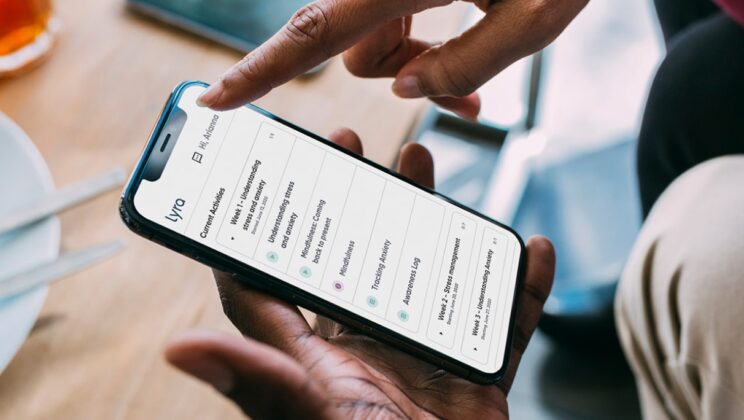Telemental health collaborative care medication management: Implementation and outcomes
Abstract
Introduction
Access to quality mental health medication management (MM) in the United States is limited, even among those with employment-based health insurance. This implementation, feasibility, and outcome study sought to design and evaluate an evidence-based telemental health MM service using a collaborative care model (CoCM).
Methods
CoCM MM was available to adult employees/dependents through their employer benefits, in addition to therapy. Outcomes included Patient Health Questionnaire-9 (PHQ-9) and the Generalized Anxiety Disorder-7 (GAD-7) collected at baseline and throughout participation. This analysis was not deemed to be human subjects research by the Western Institutional Review Board.
Results
Over 17 months, 212 people enrolled and completed >2 assessments; the enrollees were 58.96% female with average age of 32.00 years (standard deviation [SD] = 7.38). In people with moderate to severe depression or anxiety, PHQ-9 and GAD-7 scores reduced by an average of 7.27 (SD = 4.80) and 6.71 (SD = 5.18) points after at least 12 ± 4 weeks in the program. At 24 ± 4 weeks, the PHQ-9 and GAD-7 reductions were on average 7.17 (SD = 5.00) and 6.03 (SD = 5.37), respectively. Approximately 65.88% of participants with either baseline depression or anxiety had a response on either the PHQ-9 or GAD-7 at 12 ± 4 weeks and 44.71% of participants experienced remission; at 24 ± 4 weeks, 56.41% had response and 41.03% experienced remission.
Conclusions
An evidence-based CoCM telemedicine service within an employee behavioral health benefit is feasible and effective in reducing anxiety and depression symptoms when using measurement-based care. Widespread implementation of a benefit like this could expand access to evidence-based mental health MM.
Related studies

Clinical Study
Outcomes of a live messaging, blended care coaching program among...
Lyra’s coaching via live text-based messaging can be effective for moderate anxiety symptoms.

Clinical Study
Outcomes of a blended care coaching program for clients presenting...
Lyra’s video-based coaching is effective for reducing moderate anxiety and depression symptoms.
Clinical Study
Effectiveness of a cognitive behavioral coaching program delivered via...
Lyra’s coaching program can be effective in reducing stress and promoting well-being.